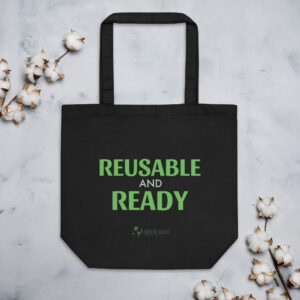As you navigate the complex world of sustainability, it’s essential to distinguish between enduring truths and prevalent myths. Amid the wide array of information available, it’s easy for environmental misinformation to cloud our judgment, leading to misconceptions about what truly constitutes sustainable practices.
By applying rigor in fact-checking not only can you demystify these sustainability myths, but also contribute to a more environmentally conscious and informed public discourse.

Unraveling these myths is more than an exercise in truth—it’s a step towards responsible citizenship and smarter decision-making for both businesses and individuals. The notion, for example, that sustainability is invariably associated with higher costs is one such myth that deserves scrutiny. Your role in separating fact from fiction is not just vital; it empowers you to make choices that genuinely benefit the planet without compromising on efficiency or economic viability. By questioning the status quo and investigating the facts, you help build a foundation for a more sustainable and equitable future.
Unveiling Common Sustainability Myths
Understanding the truths behind sustainability is critical for making informed decisions. Let’s address popular misconceptions that often deter progress.
The Myth of High Costs and Low Value
It’s a common belief that sustainable practices immediately lead to higher costs and lower value. This isn’t the case when you consider the long-term benefits and savings. The perception that eco-friendly options are always more expensive is debunked when you account for the efficiency and cost savings over time. Initiatives such as the use of renewable energy can lead to substantial savings, contrary to the myth that they are prohibitively costly.
Misconceptions Around Resources and Access
natural resources are often thought to be limitless. However, sustaining our planet depends on the careful management and fair distribution of these resources. The idea that sustainable products and services are less accessible is becoming less true as more affordable options become available and more industries adopt greener practices.
Deconstructing Energy and Efficiency Myths
There’s a misconception that renewable energy isn’t as reliable or powerful as traditional sources. However, advancements in technology have made renewable energy more efficient and capable of meeting large-scale demands. Believing that sustainability can negatively impact energy use overlooks the potential of innovative solutions that both conserve energy and maximize efficiency.
-

Fashionably Green and On-The-Go
£16.50 Select options This product has multiple variants. The options may be chosen on the product page -

Reusable and Ready Eco-Friendly Tote Bag
£16.50 Add to cart
Evaluating the Impact on Business and Economy
In this section, you’re going to find out how sustainability is more than just a buzzword; it’s a new vein of business strategy that’s impacting industries and the economy at large. Let’s explore how implementing environmental, social, and governance (ESG) factors can create real value for public companies.
Sustainability in Industries and Public Companies
Sustainability in your industry isn’t just about reducing carbon footprints. It’s about incorporating practices that can lead to long-term advantages. Think of resource efficiency like using less water or energy. This not only helps the planet but also reduces costs. For public companies, transparent reporting of sustainability efforts can attract investors and customers alike, enhancing brand reputation and potentially leading to increased market share.
The Role of ESG in Value Creation
Integrating ESG factors into your business model can signify to investors that your company is a lower risk and has proficient management. This can directly affect your company’s value. Reports show that companies with strong ESG compliance often experience higher investment returns and lower volatility compared to businesses that lag in this area. Embracing ESG could help in attracting capital and improving operational performance, which is good for the economy as well.
Dissecting Environmental and Climate Concerns
Understanding the distinction between widespread assumptions and verified knowledge about environmental and climate issues is key to constructive dialogue and informed decision-making.
Climate Change Narratives and Reality
When discussing climate change, it’s vital to distinguish between empirical evidence and narrative. Scientists use a robust array of data, including temperature records, ice cores, and satellite measurements, to paint a clear picture of how the climate is changing. Unfortunately, environmental misinformation can lead to misconceptions, such as viewing climate models as unreliable. These models, although imperfect, offer valuable insights into climate dynamics and future predictions. For example, the myth that climate models can’t accurately represent clouds is addressed through evolving research and improved computing power, making today’s climate projections more reliable than ever.
Green Standards and Environmental Policies
Your understanding of green standards and environmental policies must be informed by facts, not fiction. A common sustainability myth is that these regulations and policies always come with burdensome costs and stifle business growth. However, adopting sustainable practices can result in long-term savings and operational efficiencies for businesses. Moreover, the integration of green standards not only supports environmental goals but can also enhance reputation and meet consumer demand for responsible corporate behavior. When examining environmental policies, analyse their long-term benefits against the short-term costs to see how they contribute to a sustainable future.
Innovations and Misinformation in Sustainability
When you think about innovation in sustainability, it’s often a blend of new technologies like artificial intelligence (AI) and age-old wisdom applied through modern methods. This section digs into how AI intersects with sustainable practices and how tech and data are pivotal in busting environmental misinformation.
The Intersection of AI and Sustainable Practices
AI is revolutionizing the way you approach sustainable practices. Artificial Intelligence can optimize energy usage in real-time or predict patterns in environmental change, making mitigation strategies more effective. Companies are using AI to improve waste management through smarter recycling sorting systems, which can differentiate materials with higher accuracy than ever before. These tech-driven improvements not only innovate but also reduce carbon footprints and resource wastage.
Challenging Myths With Data and Technology
The road to sustainability is riddled with myths, but data and technology serve as the perfect tools for fact-checking. With robust data analysis, you can now debunk myths such as the notion that sustainability is always expensive or less profitable. For example, studies have shown that sustainable practices can bring economic benefits by cutting costs and improving efficiencies. Technology also allows for the transparent tracking of a company’s sustainability progress, fostering greater accountability and dispelling unfounded claims.
Fact-Checking for Social Responsibility
Empowering yourself with knowledge is key to navigating the complexities of sustainability. In a world awash with information, accurate fact-checking is essential for social responsibility to ensure that environmental actions align with the real impact.
Education as a Tool Against Misinformation
Your understanding of sustainability can be significantly strengthened through education. Focus on credible resources to counteract environmental misinformation, which often stems from misconceptions about the costs and outcomes of green practices. By discerning fact from fiction, you contribute not only to your own knowledge base but also to the collective wisdom of your community.
Engaging Stakeholders: Customers, Employees, Investors
When you engage with stakeholders, clear communication is critical. Customers are attracted to companies that provide transparency and accountability in their environmental claims. Education on sustainability should extend beyond your inner circle to employees and investors, aligning everyone’s efforts towards common, fact-checked sustainability goals. Trust built on truth is the stronghold that binds together social responsibility and the pursuit of corporate sustainability.

